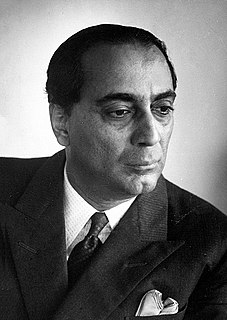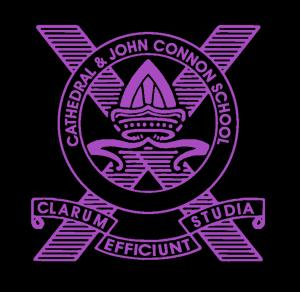
A machine tool is a machine for handling or machining metal or other rigid materials, usually by cutting, boring, grinding, shearing, or other forms of deformation. Machine tools employ some sort of tool that does the cutting or shaping. All machine tools have some means of constraining the workpiece and provide a guided movement of the parts of the machine. Thus the relative movement between the workpiece and the cutting tool is controlled or constrained by the machine to at least some extent, rather than being entirely "offhand" or "freehand". It is a power driven metal cutting machine which assists in managing the needed relative motion between cutting tool and the job that changes the size and shape of the job material.

Godrej Group is an Indian multinational conglomerate headquartered in Mumbai, which is managed and largely owned by the Godrej family. It was founded by Ardeshir Godrej and Pirojsha Burjorji Godrej in 1897, and operates in sectors as diverse as real estate, consumer products, industrial engineering, appliances, furniture, security and agricultural products. Its subsidiaries and affiliated companies include Godrej Industries and its subsidiaries Godrej Consumer Products, Godrej Agrovet, and Godrej Properties, as well as the private holding company Godrej & Boyce Mfg. Co. Ltd.

Homi Jehangir Bhabha was an Indian nuclear physicist, founding director, and professor of physics at the Tata Institute of Fundamental Research (TIFR). Colloquially known as "Father of the Indian nuclear programme", Bhabha was also the founding director of the Atomic Energy Establishment, Trombay (AEET) which is now named the Bhabha Atomic Research Centre in his honour. TIFR and AEET were the cornerstone of Indian development of nuclear weapons which Bhabha also supervised as director.

Adi Burjorji Godrej is an Indian billionaire businessman and industrialist, head of the Godrej family, and chairman of the Godrej Group. As of October 2020, he has a net worth of US$2.3 billion.
The Godrej family is an Indian Parsi family that manages and largely owns the Godrej Group, a conglomerate founded by Ardeshir Godrej and his brother Pirojsha Burjorji Godrej in 1897, spanning sectors as diverse as real estate, consumer products, industrial engineering, appliances, furniture, security and agricultural products. Headed by Adi Godrej alongside his brother, Nadir Godrej, and cousin, Jamshyd Godrej, the family is one of the richest in India; with an estimated net worth of $11.6bn as of 2014.

The Cathedral & John Connon School is a co-educational private school founded in 1860 and located in Fort, Mumbai, Maharashtra. It has five sections: Pre-Primary, Infant, Junior, Middle and Senior Schools.

Sir Pherozeshah Merwanjee Mehta was an Indian Parsi politician and lawyer from Bombay. He was knighted by the British Government in India for his service to the law. He became the Municipal commissioner of Bombay Municipality in 1873 and its President four times – 1884, 1885, 1905 and 1911. Mehta was one of the founding member and President of the Indian National Congress in 1890 held at calcutta.
Ardeshir Burjorji Sorabji Godrej (1868–1936) was an Indian businessman. With his brother Pirojsha Burjorji, he co-founded the Godrej Brothers Company, the precursor of the modern Godrej Group.
Pirojsha Burjorji Godrej (1882–1972) was an Indian businessman, son of Burjorji Godrej and brother of Ardeshir Burjorji Godrej. Projsha with his brother Ardeshir laid the foundation for the international conglomerate Godrej Group.
Rahul Mehrotra is Founder Principal of architecture firm RMA Architects of Mumbai + Boston, and is Professor of Urban Design and Planning and Chair of the Department of Urban Planning and Design at the Harvard Graduate School of Design (GSD) in Cambridge, Massachusetts.
Nadir Burjorji Godrej is an Indian industrialist and member of the Godrej family. He currently serves as managing director of Godrej Industries, one of India's biggest businesses, and as chairman of Godrej Agrovet.

Jamshyd Naoroji Godrej is an Indian industrialist and member of the Godrej family, currently serving as managing director and chairman of Godrej & Boyce, the holding company of the Godrej group. Godrej & Boyce is a diversified business with a presence across 10 industry sectors.

Godrej & Boyce Mfg. Co. Ltd. (G&B) is the flagship company of the Godrej Group. Established in 1897 in Mumbai, India, G&B is a privately held company with a presence across 10 industries – from building complex and custom engineering solutions for critical industries like aerospace, defense, clean energy, railways and automotive to manufacturing branded goods.
Burjor Khurshedji Karanjia, commonly known as B. K. Karanjia, was an Indian film journalist and editor. He was the editor of Filmfare for 18 years, followed by Screen which he edited for 10 years. He also remained the chairman of the National Film Development Corporation of India (NFDC).
Sohrab Pirojsha Godrej, popularly known as Soli, was an Indian businessperson, entrepreneur and the chairman of Godrej Group, one of the largest conglomerates in India with interests in real estate, consumer products, industrial engineering, appliances, furniture, security and agricultural products. He is a former Sheriff of Mumbai.
Jeremy Mayer is an American sculptor who uses typewriter parts and materials. He refers to his work as "cold assembly", as he does not use welding or glue.

Indian Machine Tool Manufacturers' Association (IMTMA) is the apex industry body for the machine tool sector in India. Comprising large-, medium- and small-scale units, the membership of IMTMA includes manufacturers in the entire range of metal working machine tools, accessories and other ancillary equipment for machine tools, cutting tools and tooling systems along with trading companies.
Appasaheb Marathe was a businessman from Maharashtra state in India. He is the founder of Marathe Udyog Bhavan. He was born into a Maharastrian Brahmin family to Purushottam Marathe and Janakibai on 18 June 1911, in Vengurle, a village in Konkan region. He lost his father at an early age. Due to extreme poverty at home he was forced to leave his native place after his matriculation and move to Mumbai for his livelihood. There he started working in a shop known as P. Shah & Co.







